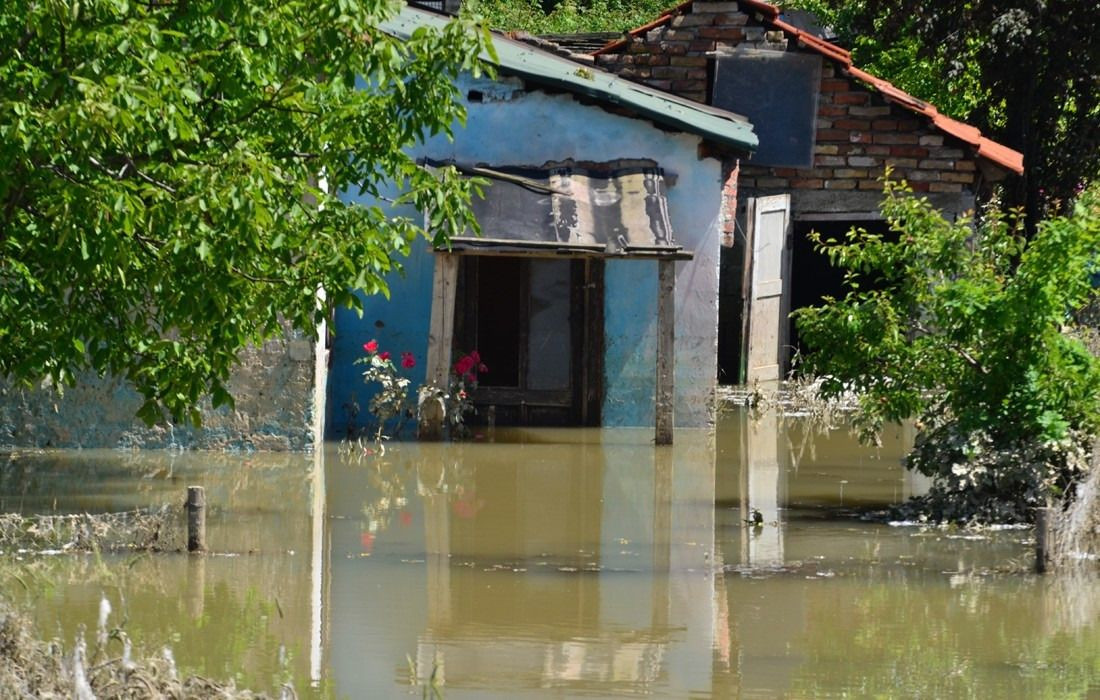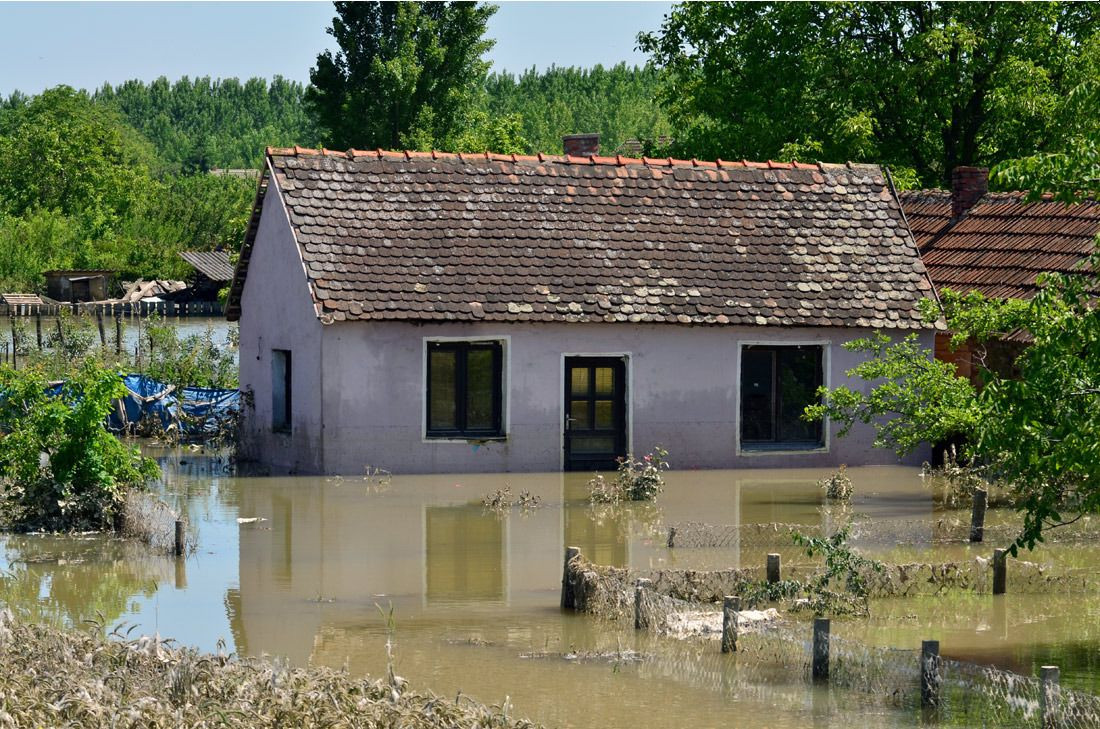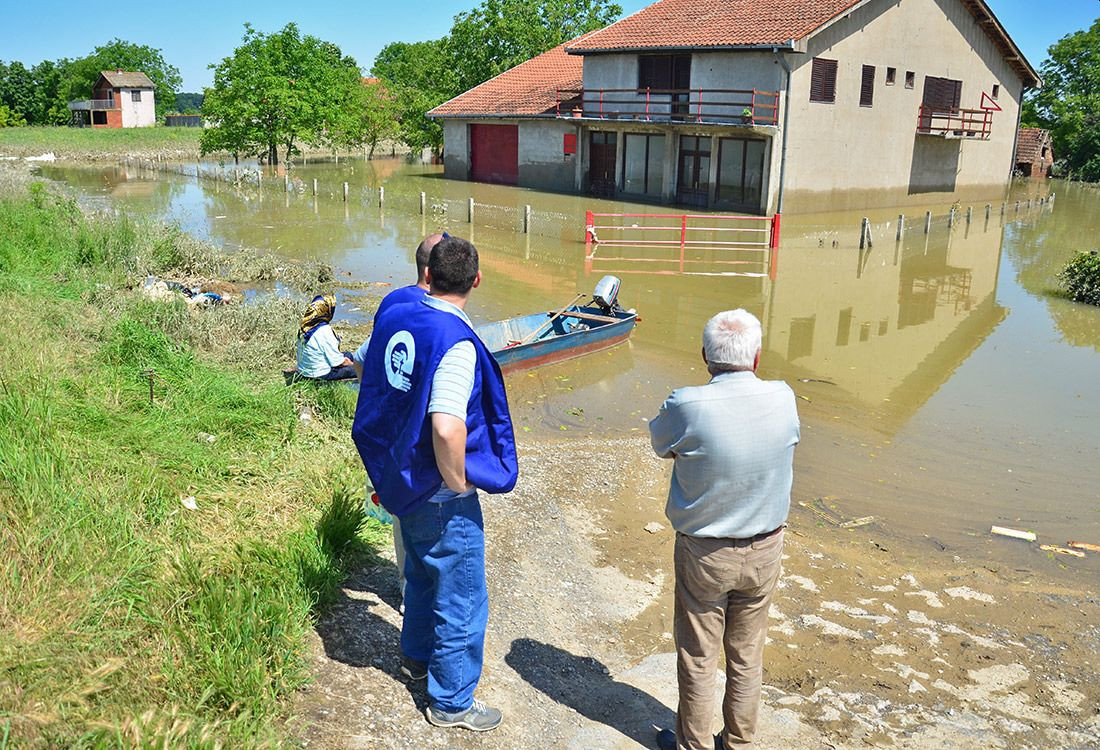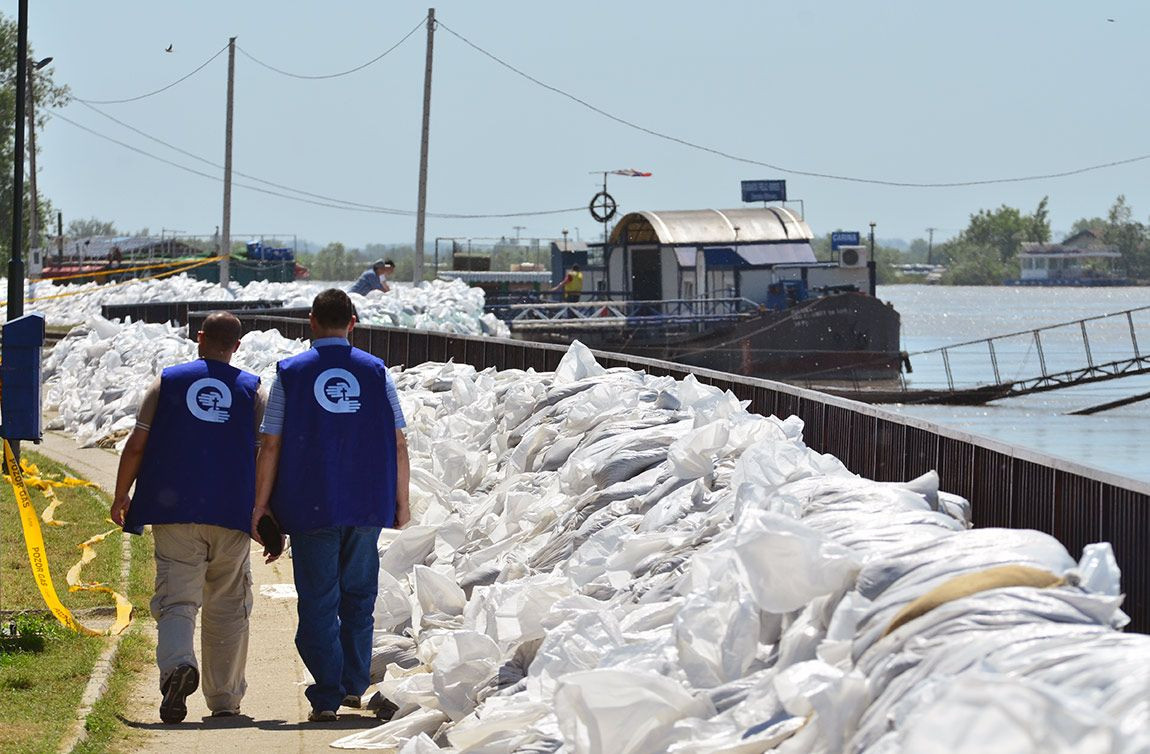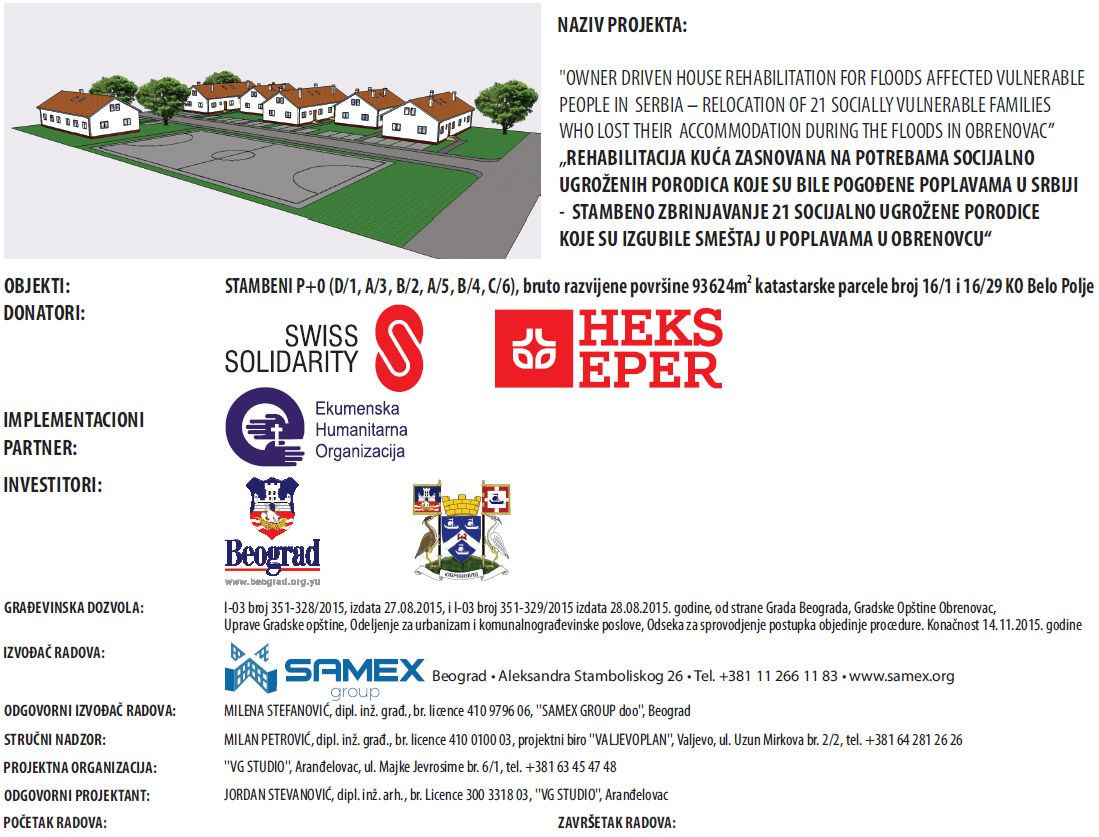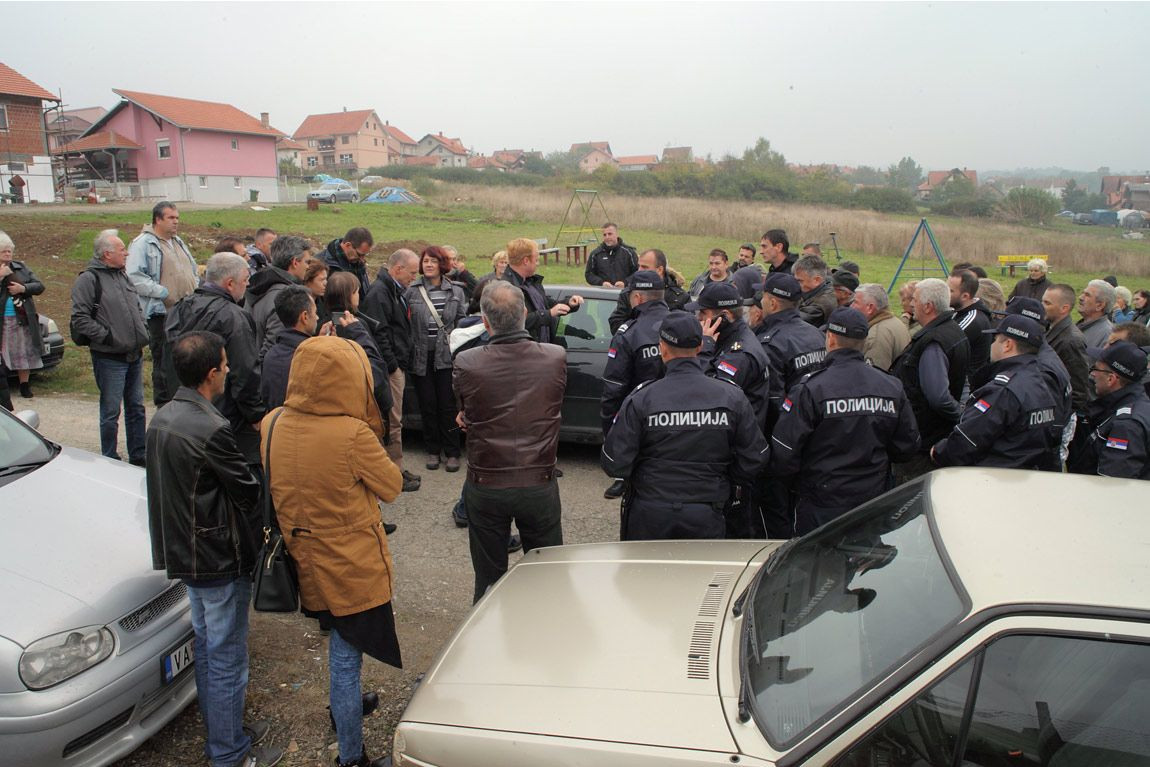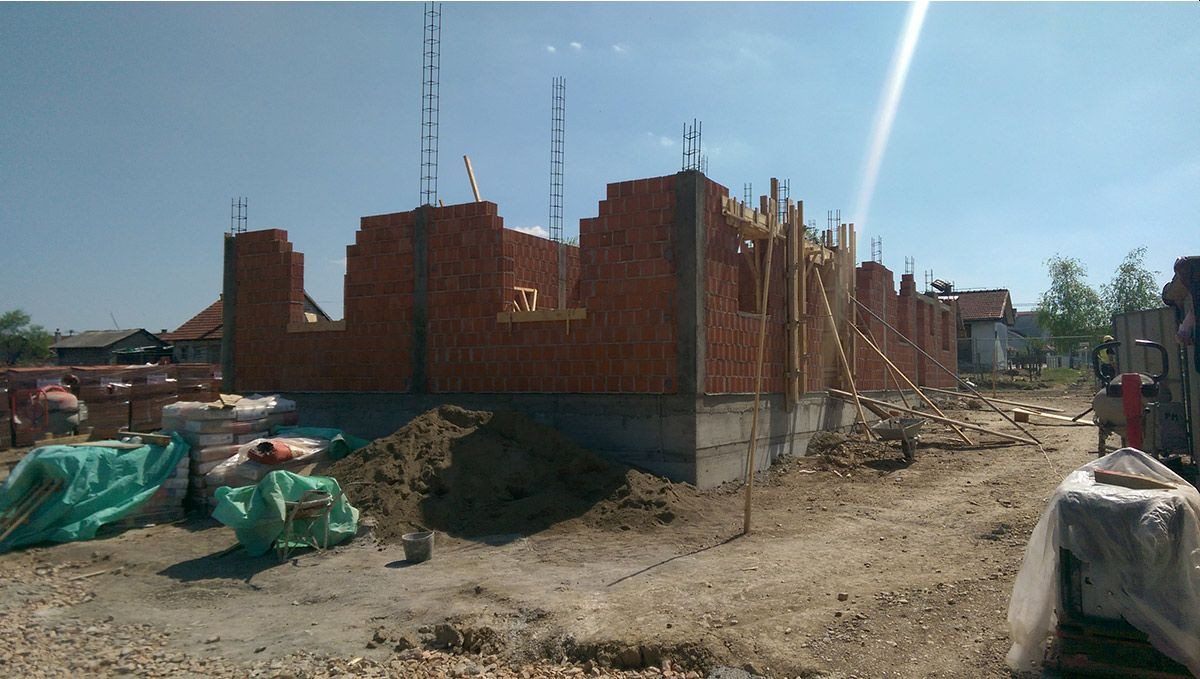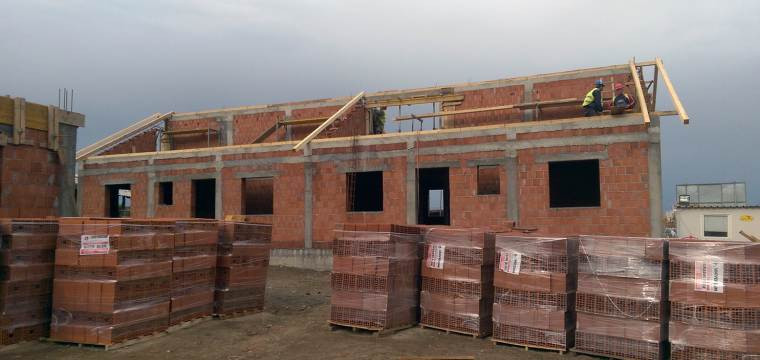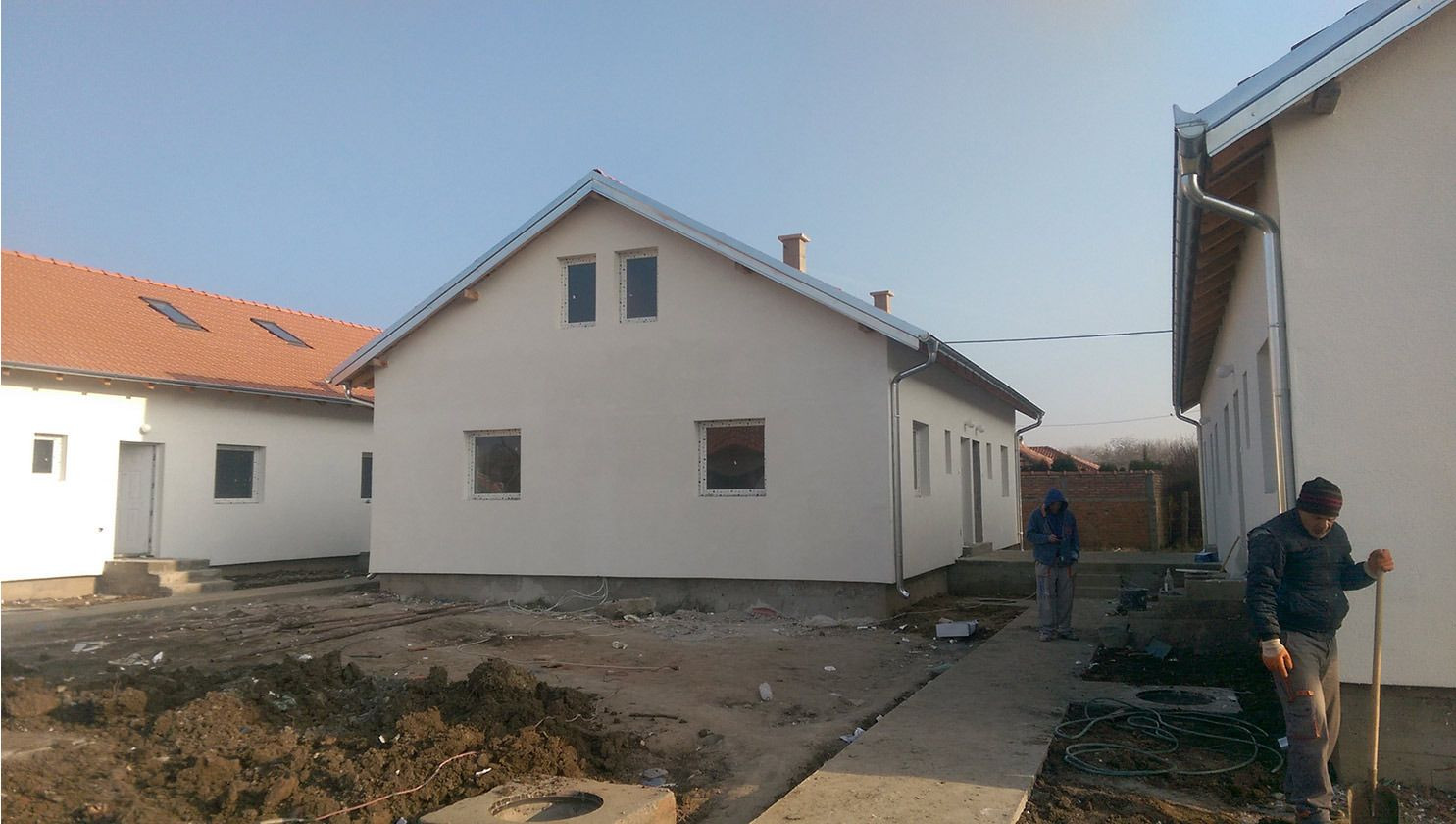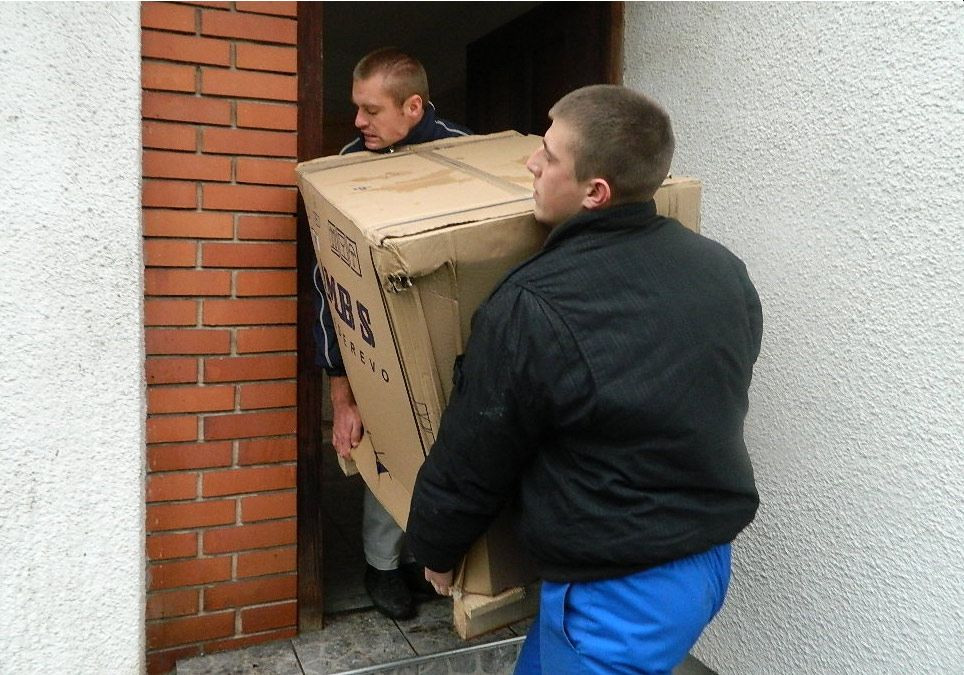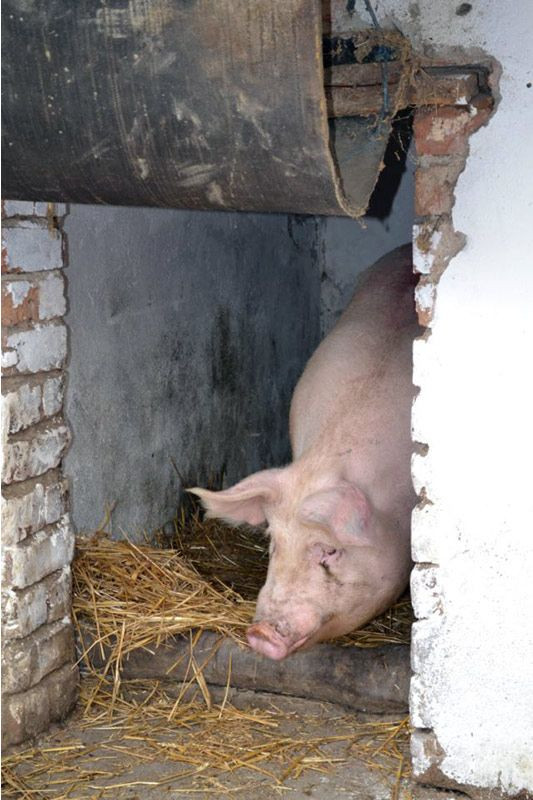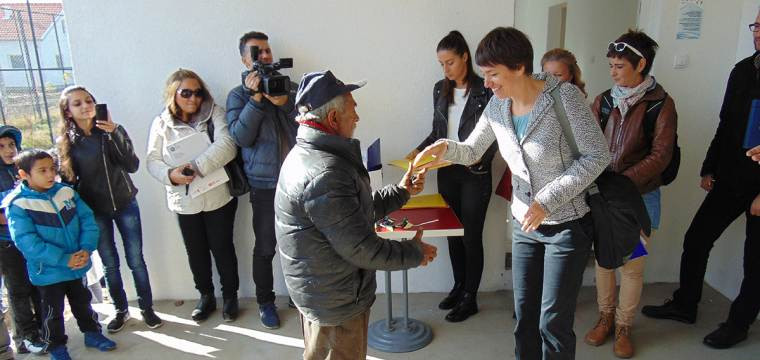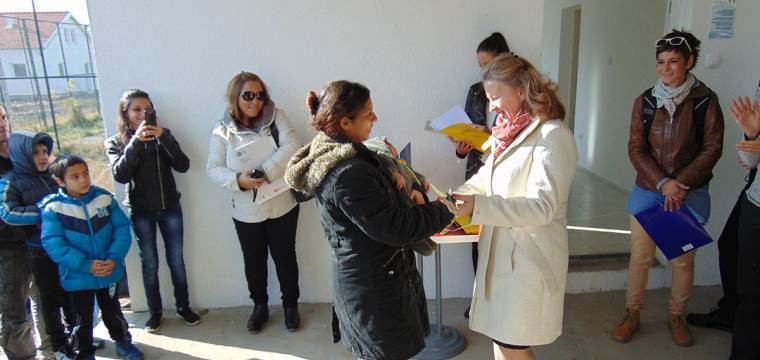Rehabilitation of houses based on the needs of socially vulnerable families affected by the 2014 floods in Serbia
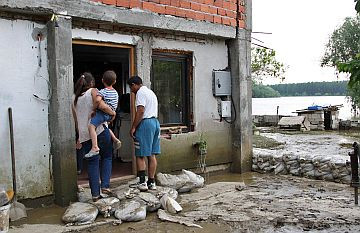
Catastrophic floods in May 2014 in Serbia have moved EHO to immediately mobilize its own Crisis Staff and organize field visits to flooded areas. Initial contacts were immediately made with representatives of local governments, cities and municipalities, including families whose facilities were damaged in the floods. This field mapping work gave us an in-depth understanding the situation on the spot, enabled us with an improved coordination and communication with other actors, thus providing us strategic organizational decision-making capacity to decide on areas where we can help local governments and individuals in the process of rehabilitation after the flood.
Side-by-side with immediate distribution projects with humanitarian aid in food, hygiene, dehumidifiers, furniture, appliances, livestock and animal feed, EHO prepared a long-term support project "Rehabilitation of houses based on the needs of socially vulnerable families affected by floods in Serbia" in cooperation with our Swiss partner HEKS-EPER. This project was started on 01 August 2014 and the realization was finished on 30 June 2016.
1. The project "Rehabilitation of houses based on the needs of socially vulnerable families affected by floods in Serbia":
The project "Rehabilitation of houses based on the needs of socially vulnerable families affected by floods in Serbia" is a joint response of two partner organizations - EHO (Ecumenical Humanitarian Organization), Novi Sad, Serbia and HEKS-EPER (Humanitarian Service of Protestant Churches in Switzerland), Zurich , Switzerland, who have been cooperating successfully since 1993.
The project focuses on the rehabilitation of flood-affected houses, for socially vulnerable families.
The project provides the following support and services:
1) technical support for planning and implementation of the house rehabilitation project;
2) construction material for beneficiary families (by applying a voucher system for construction material / where home delivery is required);
3) consultations, counseling, guidelines and professional support in the execution of construction works.
The project was implemented in four local self-government units (LGUs), in the period, August 1, 2014 - December 31, 2015:
1) the municipality Obrenovac,
2) the municipality Lazarevac,
3) the city of Valjevo,
4) the city of Šabac
The project "Rehabilitation of houses based on the needs of socially endangered families affected by the floods in Serbia" covered 367 socially endangered families in four local self-governments.
Depending on the damage to the house during the flood, EHO has defined four (4) categories of assistance:
1. Category I: Drying of living space and urgent and minor repairs in the house - doors, windows, floors, walls, sanitary equipment, etc. Budget: up to 1'000 euros.
2. Category II: Individual solutions for rehabilitation, home repairs - sewer repair, toilet, bathroom, roof, ceiling, floors, installations, etc. Budget: up to 2,000 euros.
3. Category III: Individual solutions for rehabilitation, major repairs in the house - reconstruction of parts of the house, repair of sewage, toilet, bathroom, roof, ceiling, floors, installations, etc. Budget: up to 3,000 euros.
4. Category IV: Individual solutions for the construction of a small core house. Investment for the construction of new small core houses, from used construction materials: Budget: up to 4'700 euros.
1.1 Project activities in Obrenovac: After a detailed assessment of the damage to buildings after the flood and the degree of social vulnerability of families, EHO transparently selected the beneficiary families and made a final list, with a total of 186 beneficiary families living in the Municipality of Obrenovac - Vašarište, Belo Polje, Zvečka-Bošnjaci, Šljivice, Zabrežje, Breska, Šabački put, Rvati, Braće Jugović, Dudovi, Urovci, Veliko Polje, Piroman-Veprovica, Vojvode Mišić, Đačkog bataljona, Centar, Stubline-Veliko polje and Majdan.
EHO fully concluded the Final List of Beneficiary Families on 04 May 2015. In Obrenovac there have been realized: 72 of category I, 70 of category II, 42 of category III and two (2) of the category IV.
Throughout the entire implementation of the project, EHO applied the participatory working method (working model of the author: "Dweller Driven Upgrading of Roma Settlements"/ "Reconstruction of Roma settlements based on the needs of their inhabitants", Ecumenical Humanitarian Organization, Serbia and HEKS-EPER, Switzerland). This working method implies a comprehensive approach to solving existing problems and participatory methods of work, which involve the involvement of all stakeholders / parties in the decision-making process. The greatest importance in the whole process is given to representatives of the Roma national community, and also to representatives of other socially vulnerable categories, who contributed to the sustainability of the whole process through their active participation.
The process of house renovations was managed by residents of the settlement with a professional experience. Residents of the settlement were responsible for the whole process of house renovation and living conditions improvement: residents themselves performed construction works, organized community volunteer joint action or paid professionals. In this process, they were assisted by professionals for a professional supervision and support. This type of the target group participation strengthens the sense of "ownership" over the process / project, increases project sustainability, and promotes the active citizen participation.
The entire system of delivery of construction materials was done by a system of construction vouchers consisting of several phases, depending on the approved category. Our organization, except in the case of performing electrical and plumbing work, did not pay for the labor, but instead, animated and mobilized beneficiary families to organize the work independently. Our organization did not pay financial resources to beneficiaries. Also, the organization did not pay donations to the municipality Obrenovac. The organization made direct payments only to construction material warehouses upon the basis of previously determined construction works for each beneficiary, namely, on the basis of types and quantities of construction material required for completion of construction phase.
EHO is the only humanitarian organization on the territory of the municipality Obrenovac that was able implement the project "Rehabilitation of houses based on the needs of socially vulnerable families affected by floods in Serbia", according to the principles and methodology of work described above.
Any other organization that may have used the name of our project - "Rehabilitation of houses based on the needs of socially vulnerable families affected by floods in Serbia" – or a part of our project documentation (specifically Family Questionnaire and List of Beneficiary Families), did not have our consent for this type nor the official approval by our organization to apply our principles, methodology and instruments of work.
2. The Project "Housing for 37 socially endangered families who lost accommodation in the floods in Obrenovac and Lazarevac":
In May 2015, in Belgrade, a Protocol on cooperation was signed on the joint implementation of the (sub) project "Housing care for 37 socially endangered families who lost accommodation in the floods in Obrenovac and Lazarevac." The signatories of the Protocol on Cooperation are the Ecumenical Humanitarian Organization from Novi Sad, the City of Belgrade and the City Municipalities of Obrenovac and Lazarevac. By signing this Protocol, the signatories accepted mutual obligations on the implementation of the project of construction of 37 housing units, bearing in mind the special conditions arising from the natural disaster - floods during May 2014, as a result of which the Government of the Republic of Serbia proclaimed a state of emergency.
The City of Belgrade has given the plot, on which housing units would be built. The land is owned by the City of Belgrade and given to the respective use of City municipality of Obrenovac and the City municipality of Lazarevac . Also, the City of Belgrade, entrusting these works to the municipality of Obrenovac and municipality of Lazarevac, initiated and will implement all legally prescribed procedures for the final obtaining of the construction and subsequent usage permit for residential buildings after the completion of works. City municipality Obrenovac and City municipality Lazarevac performed infrastructural facilitation of plots given to their respective use.
EHO provided financial resources required for the implementation of the housing program for 37 socially vulnerable families who lost their accommodations in the floods in the City municipality Obrenovac and the City municipality Lazarevac, and who were unable to find another feasible housing solution.
Six ground-floor buildings with a total of 21 housing units were built in Obrenovac, while four ground-floor buildings with a total of 16 housing units were built in Lazarevac.
On Thursday, 26 October 2017, the keys to 16 social apartments were handed over to 16 socially endangered families whose temporary accommodation, in the barracks of Kolubara in Veliki Crljeni, was destroyed in the floods in May 2014.
On Thursday, 26 October 2017, the keys to 21 social apartments were handed over to 21 socially endangered families whose temporary accommodation in Obrenovac was destroyed in the floods in May 2014.
The donors of the project are the Swiss Foundation “Swiss Solidarity”, the Swiss Agency for Development and Cooperation and HEKS-EPER, Switzerland (which is the main project holder). As a local partner of HEKS-EPER, EHO is in charge of project realisation.
